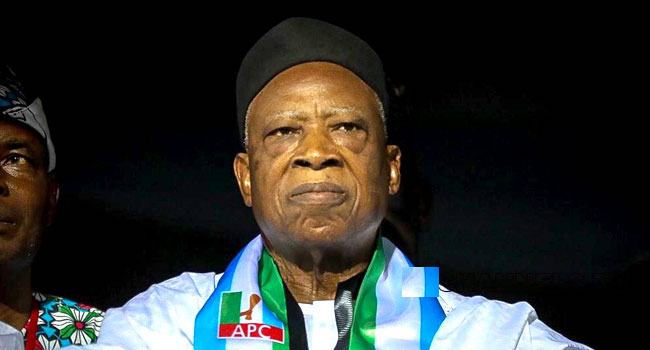Politics
Uncertainty trails consensus move, as APC holds presidential primary

Despite being at the helm of affairs for the better part of the last decade, the ruling All Progressives Congress (APC) is set to commence its primaries, scheduled for June 6 to June 8, on shaky grounds.
President Muhammadu Buhari, on Sunday, had expressed confidence in the chances of APC in the 2023 general elections.
The President, who met members of the APC National Advisory Council at the Presidential Villa, Abuja, said the ruling party would record its third straight victory since 2015.
Speaking at the meeting convened as part of the consultations within the party towards getting a widely acceptable candidate for the 2023 elections, Buhari stressed that the motive was to build on the party’s electoral success.
He said: “I am optimistic that the outcome of this consultation with the National Advisory Council in addition to sharpening our focus, helps to fortify the positive democratic principles, practices, and culture that already exist within the party.
“I am pleased to inform you that those meetings have been fruitful and indicative of a party that is prepared and matching towards a third straight victory at the presidential polls since 2015.”
Nonetheless, recent events might derail the optimistic prediction of President Buhari about a ‘third straight victory.’
This is even as about 2,340 delegates of the governing party will arrive in Abuja today ahead of the party’s special convention to pick its presidential flag bearer.
A meeting of leaders, governors, and presidential aspirants from the South West region to pick one of the aspirants from the zone as a consensus candidate of the APC failed to hold in Abuja last night.
Ten APC governors from the north, as well as Senator Aliyu Wamakko, signed a declaration on Saturday night urging the president to choose a southern presidential candidate as his successor.
Buhari urged party stakeholders at an Aso Villa meeting with all APC presidential hopefuls that the party’s Action Congress of Nigeria (ACN) group should be allowed to produce his successor.
Read also: Court approves statutory delegates to vote in APC presidential primary, others
As a result, Jigawa State Governor Abubakar Badaru withdrew from the presidential contest, and other northern hopefuls were expected to follow suit.
However, the South West governors and leaders were yet to agree on a consensus candidate as instructed by the president that they should hold consultations amongst themselves “and with the party, with a view to building a consensus in a manner that would help the party reduce the number of aspirants, bring up a formidable candidate and scale down the anxiety of party members.”
The major contenders from the South-West are Vice President Yemi Osinbajo; APC leader, Bola Ahmed Tinubu, Ekiti State governor, Kayode Fayemi, and Senator Ibikunle Amosun.
It remains to be seen whether these politicians would shelve their differences and ambitions for the benefit of the party and the country, at large. But the next 48 hours will unveil just how well the party can put its house in order, and who will fly it’s flag in the 2023 presidential election.
Join the conversation
Support Ripples Nigeria, hold up solutions journalism
Balanced, fearless journalism driven by data comes at huge financial costs.
As a media platform, we hold leadership accountable and will not trade the right to press freedom and free speech for a piece of cake.
If you like what we do, and are ready to uphold solutions journalism, kindly donate to the Ripples Nigeria cause.
Your support would help to ensure that citizens and institutions continue to have free access to credible and reliable information for societal development.
























